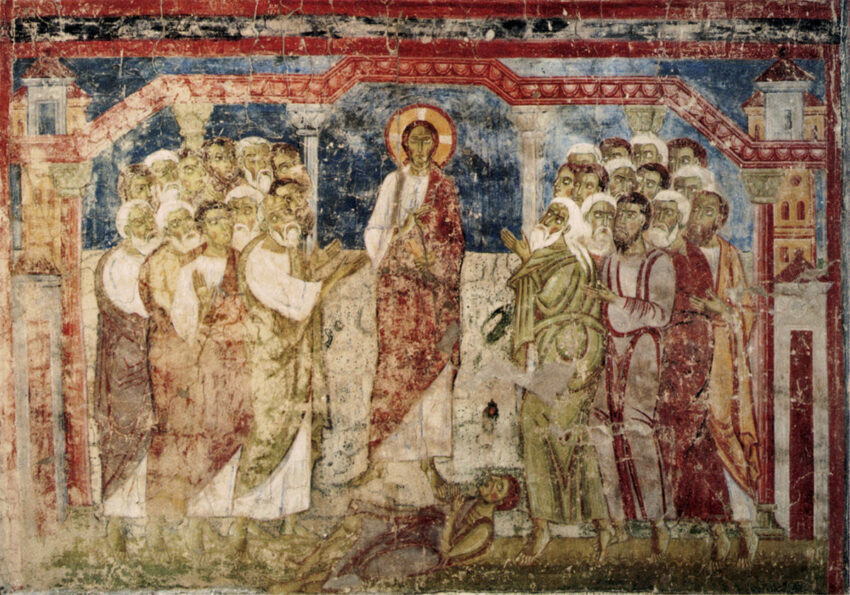The biblical text is epic, expansive, and integrated in specific and articulate ways. After 500 episodes (over 800, if you add in Tarazi Tuesdays), I am convinced that the biblical genre’s complexity is far beyond the reach of contemporary literature and artistic expression. This is not intended as hyperbole. People get excited about modern literature…
Category: Luke

To Muzzle, Dominate, and Overhelm
In 1 Corinthians, the Apostle Paul, with all authority, does not speak on human authority, “for it is written in the law of Moses, ‘You shall not muzzle an ox when it is treading out the grain.’ Is it for oxen that God is concerned? … but we endure anything rather than put an obstacle…

The Semitic Triliteral
To understand the power of the Semitic triliteral root, consider the grammatical, functional, empirical, and, thus, anti-Platonic literary interconnection between DaBaR (word), keDoBRam (pasture), yaDBeR (subdued), watteDaBBeR (destroyed), beDaBBeRo (at his speaking), miDBaRek (your mouth), and miDBaR (wilderness). Only in the original Semitic do we hear and see the consonantal link between the shepherd’s pasture,…

Keep Your Hands Off
The same Hebrew word, shebet, refers both to the staff of a shepherd and the tribe. It is the exact same word. The staff of God is the premise, the reference, and the totality, not the community. In the land of Scripture, which is not your land, does not speak your language, does not conform…

God Does Not Speak English
A listener wrote us this week to share a passage from Letter 57 of Jerome that captures (with respect to the terrorism of translations) what we said recently about Semitic languages in opposition to Hellenism and what we explain in today’s episode about Semiticized Greek in opposition to imperial Latin: “Time would fail me were…

Abjad Languages
In his 1990 article, “Fundamentals of Grammatology,” Peter T. Daniels proposed the Arabic term “abjad” to describe a type of Semitic script “that denotes individual consonants only.” Such languages force the reader to infer vowel sounds as they read the text. The term abjad is derived from the original (pre-Islamic) order of the first four…

Jesus Says, “No!”
Christians love to talk about glory and victory because we are all Roman imperialists in our secret hearts—in the thoughts that we imagine God cannot hear. We lust after victory. We want to conquer and control. We are the colonial occupiers. We plan and strategize on how to spread our dung piles around. What is…

The Most High is Your Dwelling
In Luke 4, it is striking that the text refers to the opponent of Jesus, not as Satan, the “obstacle” or “roadblock” of the gospel, but as the deceiver, the Devil. It’s easy to dismiss this as poetic license or other such nonsense, but that is the point in the discussion when your English teacher…

Bread and Stone
The interplay between the terms bayt and heykal in biblical Hebrew is simple. So simple that it can be explained to a child. A heykal is a building made of stone that serves as both a temple and a palace for the king. The writers of the old TV series Stargate SG1 got the basic…

In the Wilderness
Imagine searching for guidance on the best way to live life. You have the chance to speak with two advisors. The first lifts your spirits. After listening carefully to you, he explains that you have value, possess unique insights, and have something to say and contribute. He argues that your needs and feelings must come…

